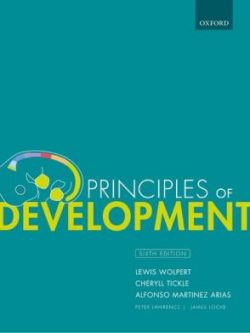Specifications
| book-author | Robert Brooker ; Eric P. Widmaier ; Linda Graham ; Peter Stiling |
|---|---|
| file-type | |
| isbn10 | 1260571327 |
| isbn13 | 9781260571325 |
| language | English |
| publisher | McGraw-Hill Education |
Book Description
“Principles of Biology, 3rd Edition” authored by Robert Brooker, Eric P. Widmaier, Linda Graham, and Peter Stiling provides a comprehensive introduction to the fundamental concepts and principles of biology. Here's an overview of what this edition entails:
- Foundations of Biology: The book begins by laying the groundwork for understanding biology, covering key concepts such as the scientific method, the chemical basis of life, and the structure and function of biological molecules. It introduces readers to the basic principles of cellular structure and function, including cell theory, membrane structure, and cellular metabolism.
- Genetics and Inheritance: Brooker and colleagues delve into the principles of genetics and inheritance, exploring topics such as Mendelian genetics, chromosome structure, and DNA replication. They discuss mechanisms of gene expression, including transcription, translation, and regulation of gene expression. They also explore the role of genetics in evolution, population genetics, and the genetic basis of human traits and diseases.
- Evolutionary Biology: The text examines the principles of evolutionary biology, including natural selection, adaptation, and speciation. It explores the evidence for evolution, including fossil records, comparative anatomy, and molecular genetics. It discusses mechanisms of evolutionary change, such as genetic drift, gene flow, and sexual selection, and their role in shaping biodiversity on Earth.
- Ecology and Ecosystems: Brooker and his co-authors explore the principles of ecology, including population dynamics, community interactions, and ecosystem structure and function. They discuss ecological relationships such as competition, predation, and mutualism, and their impact on species diversity and ecosystem stability. They also examine human impacts on the environment and strategies for conservation and sustainability.
- Physiology and Homeostasis: The book covers the principles of animal and plant physiology, including mechanisms of homeostasis, energy metabolism, and reproduction. It explores physiological systems such as the nervous system, endocrine system, cardiovascular system, and respiratory system, highlighting their role in maintaining health and adapting to environmental challenges.
- Diversity of Life: Brooker and colleagues provide an overview of the diversity of life on Earth, including the classification and phylogeny of organisms. They explore the major groups of organisms, from prokaryotes and protists to plants, fungi, and animals, discussing their evolutionary history, ecological roles, and adaptations to different environments.
- Biotechnology and Applications: The text examines the principles of biotechnology and its applications in agriculture, medicine, and industry. It discusses techniques such as genetic engineering, cloning, and gene therapy, and their ethical implications. It also explores the role of biotechnology in addressing global challenges such as food security, disease prevention, and environmental conservation.
- Integrated Learning Tools: Throughout the book, readers will find a variety of learning tools to reinforce key concepts and enhance understanding. These include chapter summaries, review questions, concept maps, and online resources such as interactive simulations, videos, and quizzes. These integrated learning tools support active learning and help students engage with the material in meaningful ways.
Overall, “Principles of Biology, 3rd Edition” offers a comprehensive and accessible introduction to the core principles of biology. It blends scientific rigor with clear explanations and engaging visuals, making it suitable for students of all levels. Whether used in introductory biology courses or as a reference for lifelong learning, this edition serves as a valuable resource for understanding the principles that govern life on Earth.













Reviews
There are no reviews yet.